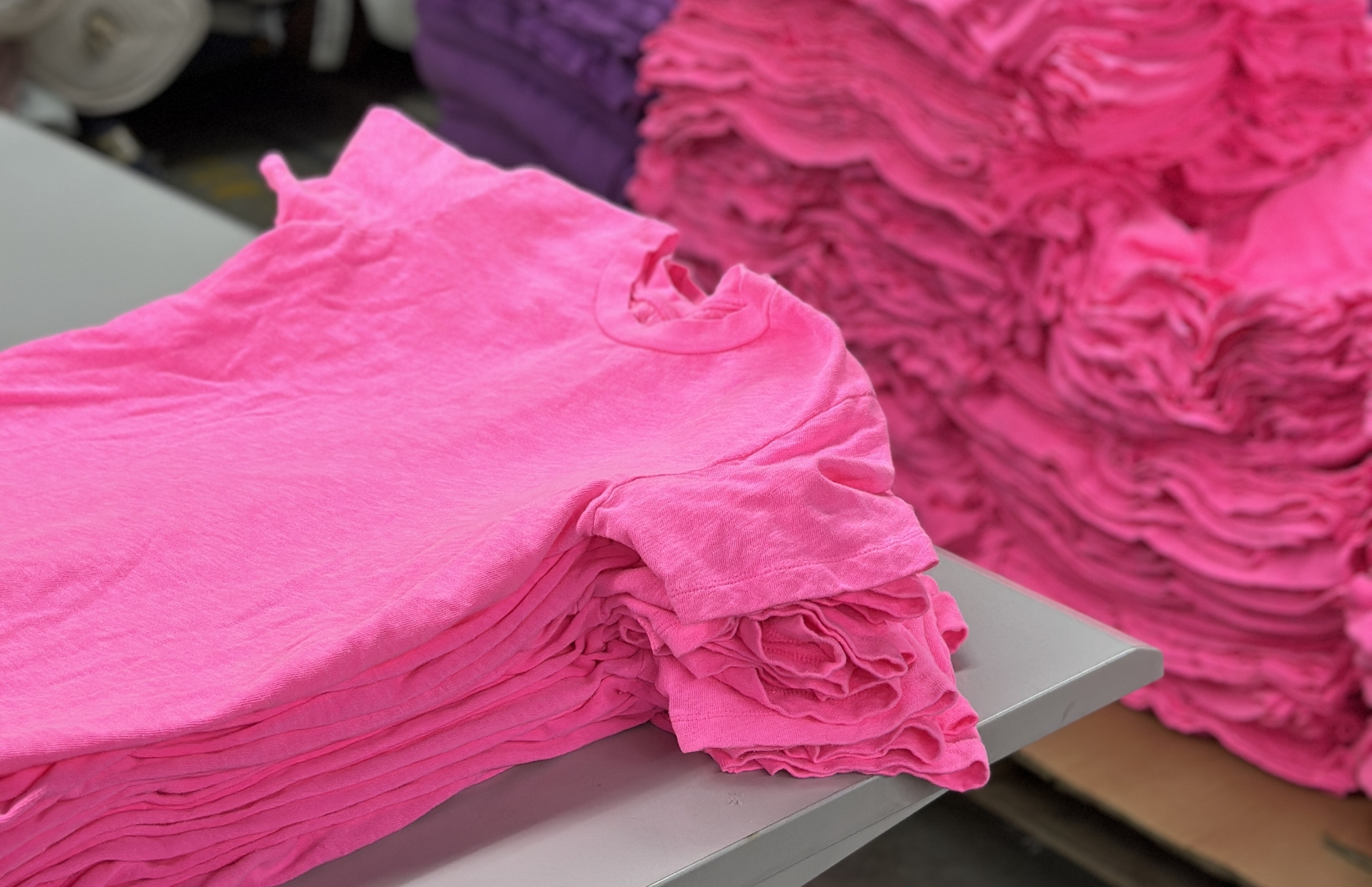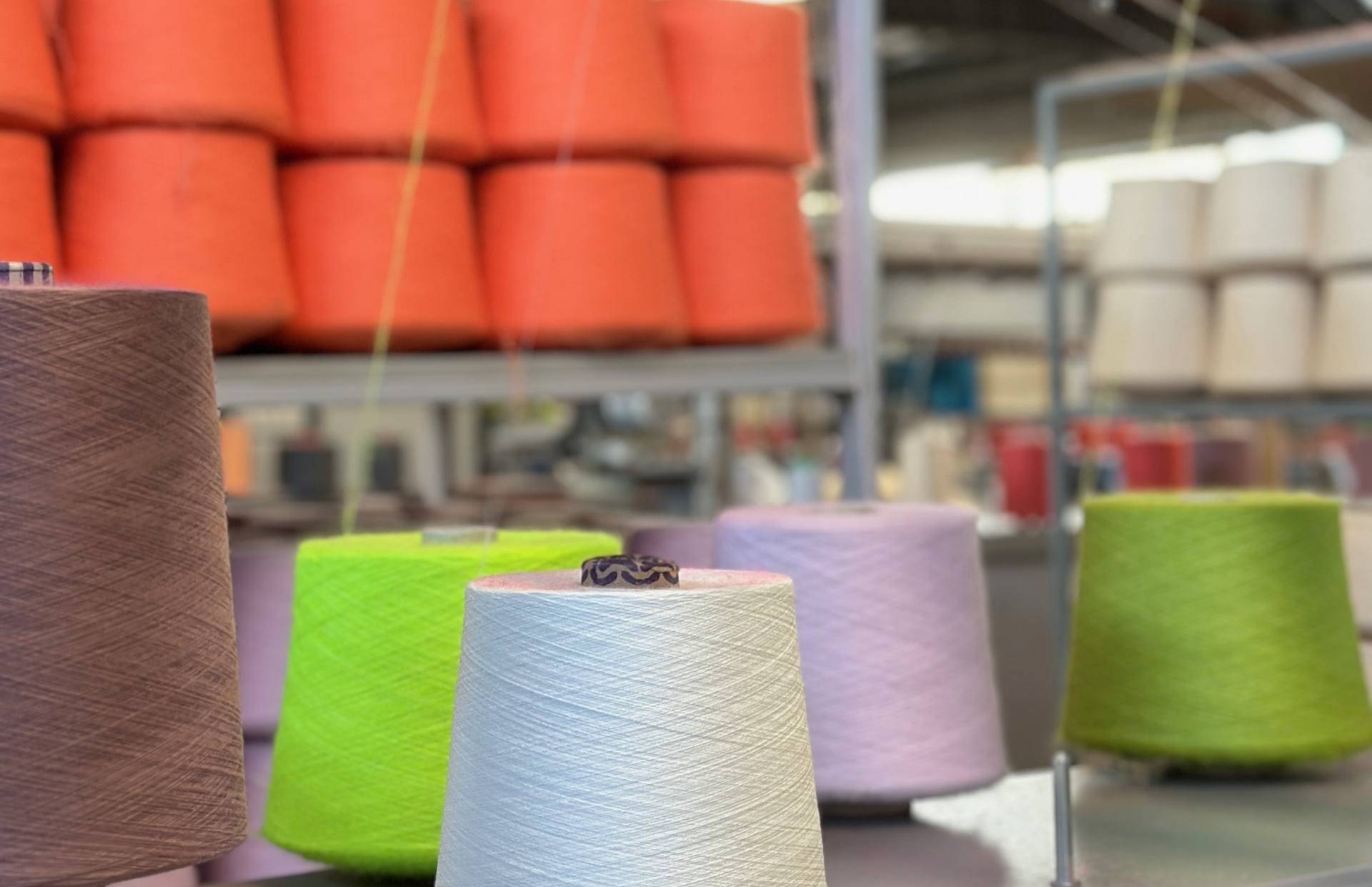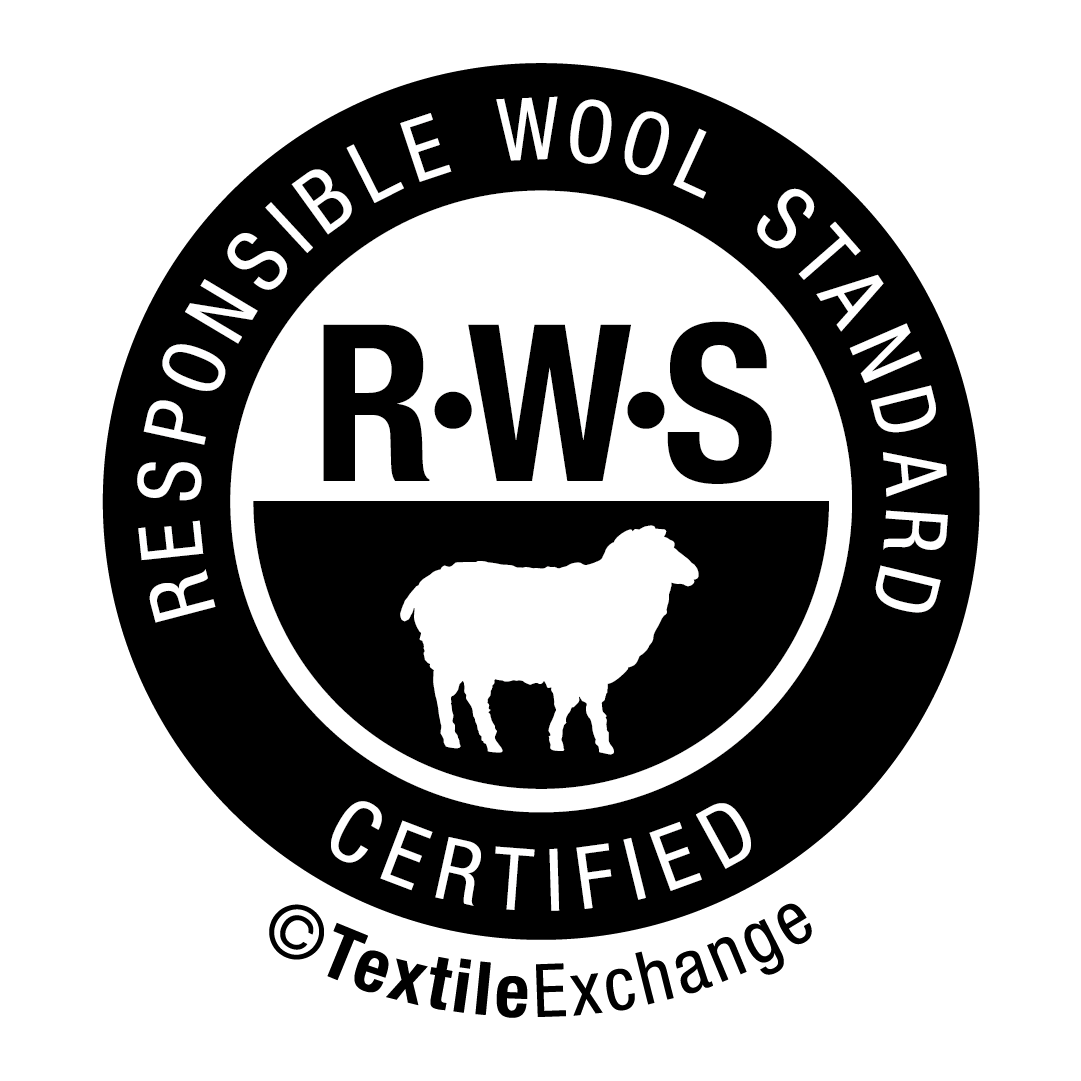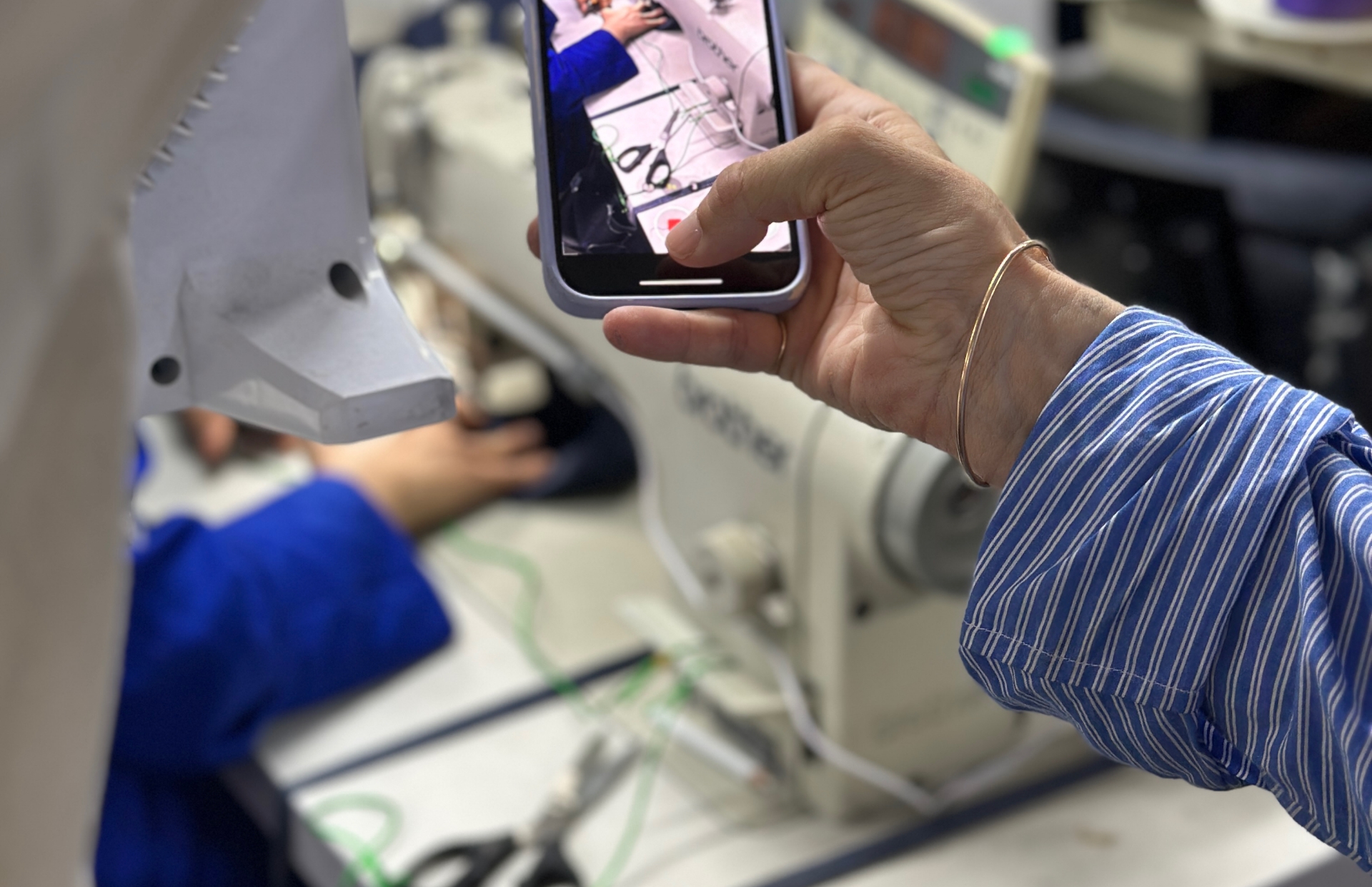Unique and delicate, our fabrics are the result of 20 years of research and development with our partner factories. They require special care to guarantee that unique feel you love so much and which has been our signature since 2005.
Prepared by our Quality team, this (ultimate) care guide is here to help you take care of your AMV favourites and make them last even longer

 PART 1
PART 1 FOLLOW THE LABEL
Designed to develop a patina, our fabrics will live and evolve.
Follow the care guide on the inside label of your clothes, and you will make sure that they survive the tests of time.
This guide is the result of in-depth analysis and annual laboratory tests. It guarantees the best care advice. You will extend the life of your clothes and the feel of our fabrics if you follow these instructions.
 WASHING
WASHING
 WASH AT 30°C MAXIMUM
WASH AT 30°C MAXIMUM
 WASH AT 30°C MAXIMUM,
WASH AT 30°C MAXIMUM,
 WASH AT 30°C MAXIMUM,
WASH AT 30°C MAXIMUM,
 WASH AT 40°C MAXIMUM
WASH AT 40°C MAXIMUM
 WASH AT 40°C MAXIMUM,
WASH AT 40°C MAXIMUM,
 WASH AT 40°C MAXIMUM,
WASH AT 40°C MAXIMUM,
 DO NOT WASH
DO NOT WASH
 HAND WASH,
HAND WASH,
 HAND WASH
HAND WASH
 BLEACHING
BLEACHING
 SUITABLE FOR BLEACHING
SUITABLE FOR BLEACHING
 DO NOT BLEACH
DO NOT BLEACH
 BLEACH
BLEACH
 DRYING
DRYING
 TUMBLE DRY AT 60°C
TUMBLE DRY AT 60°C
 TUMBLE DRY AT 80°C
TUMBLE DRY AT 80°C
 DO NOT TUMBLE DRY
DO NOT TUMBLE DRY
 LINE DRY
LINE DRY
 LINE DRY
LINE DRY
 LINE DRY
LINE DRY
 LINE DRY
LINE DRY
 DRY FLAT
DRY FLAT
 DRY FLAT
DRY FLAT
 DRY FLAT IN THE SHADE
DRY FLAT IN THE SHADE
 DRY FLAT IN THE SHADE
DRY FLAT IN THE SHADE
 IRONING
IRONING
 LOW TEMPERATURE IRON
LOW TEMPERATURE IRON
 MEDIUM TEMPERATURE IRON
MEDIUM TEMPERATURE IRON
 HIGH TEMPERATURE IRON
HIGH TEMPERATURE IRON
 DO NOT IRON
DO NOT IRON
 LOW TEMPERATURE IRON WITHOUT STEAM
LOW TEMPERATURE IRON WITHOUT STEAM
 DRY CLEANING
DRY CLEANING
 DRY CLEAN
DRY CLEAN
 DRY CLEAN
DRY CLEAN
 DRY CLEAN
DRY CLEAN
 DRY CLEAN
DRY CLEAN
 DRY CLEAN
DRY CLEAN
 DO NOT DRY CLEAN
DO NOT DRY CLEAN
 DRY CLEAN
DRY CLEAN
 DRY CLEAN
DRY CLEAN
 DRY CLEAN
DRY CLEAN
 DO NOT DRY CLEAN
DO NOT DRY CLEAN
 PART 2
PART 2 OUR FABRICS
Fabrics are at the very heart of AMV's business and are the starting point for our collections. The search for textures, subtle feels and authentic qualities are our first inspirations - and your most beautiful emotions.
Discover our fabrics: you will find out all about your wardrobe favourites.
COTTON
Cotton is the most widely used natural textile fibre at American Vintage - season after season, it accounts for almost half of our collections.
Produced from the cotton flower, this natural fibre is appreciated for its many qualities. As well as being soft and comfortable it is:
1. Hypoallergenic: because of its natural origin, sensitive skin tolerates cotton very well in general.
2. Heat regulating: known for its breathability, cotton allows air to circulate, helping regulate body temperature and provide a sense of well-being. So it is our best friend whatever the season.
3. Absorbent: with a very high absorption capacity, cotton keeps the skin dry.
4. Easy care: pure or mixed with other materials, cotton fibre is hard-wearing and will last for years.
At AMV, cotton comes in many forms:
• Supima® cotton: this cotton generally comes from end-of-life clothes or clothing production offcuts. This process means existing cotton fibres can be reused rather than growing new cotton plants, reducing demand for raw materials and environmental impact. In 2023-2024, recycled cotton represented 15% of our cotton range.
• Recycled cotton: this cotton generally comes from end-of-life clothes or clothing production offcuts. This process means existing cotton fibres can be reused rather than growing new cotton plants, reducing demand for raw materials and environmental impact. In 2023-2024, recycled cotton represented 15% of our cotton range.
• Organically farmed cotton : this fabric is a more sustainable alternative to conventional cotton, with farming methods that are kinder to the environment using less water and only natural fertilisers. In 2023-2024, organically farmed cotton represented 18% of our cotton range.
Linen is a fabric made from flax fibre. Flax is a plant in the Linaceaefamily grown mainly for its long, strong fibres. Its qualities makes it a very popular fabric, especially in summer. Linen is also popular because it is:
1. Hypoallergenic: because of its natural origin, sensitive skin tolerates linen very well in general.
2. Absorbent: linen is highly absorbent and can hold up to 20% of its weight in water without becoming damp. The fabric can ‘breathe’ and wick away moisture making it comfortable to wear, especially in the warmer months.
3. Heat regulating: linen has a natural ability to regulate temperature. It keeps the skin cool in hot weather and provides a feeling of warmth in winter.
4. Long-lasting: linen is a very resistant fibre, both strong and durable over time. It ages well and keeps its shape, even after several washes.
5. Unique: linen is known for its irregular appearance and dry feel. It is appreciated for its texture and resistance.
WOOL
Wool is one of the oldest and most widely used natural animal fibres in the textile world. Its fibres are thick and strong. Wool is particularly prized for its softness and for the following qualities:
1. Heat regulating: wool is valued for its ability to regulate temperature. It retains body heat even at the coldest temperatures.
2. Elastic and resistant: wool is naturally elastic, which means that wool clothes keep their shape.
3. Easy care: contrary to what you might think, wool clothes are easy to care for. They don't need to be washed frequently because they have "self-cleaning" properties. If they are not dirty, simply air them to preserve their texture and shape without damaging the fibre.
At AMV, we use different types of wool:
• Alpaca: alpaca has a fine, long, hollow fibre that gives clothes a fluffy look. Six times warmer than regular wool, it is very soft to the touch.
• Mohair: mohair has thick, curly and shiny fibres. It is very hard-wearing.
• Cashmere: cashmere is famous for its exceptional fine fibres, making it a top-of-the-range product. It is also appreciated for its strength, warmth and extreme softness.
Did you know? ? In 2024, a new range made its début in the American Vintage collections: RAXOW. It features 60 to 71% RWS* wool. Products labelled Responsible Wool Standard (RWS) are made with wool from farms that have been recognised and certified for good animal welfare and land management.
In 2025, AMV is extending its RAXOW range and working on a second family of RWS products.
*SARL AARON (American Vintage) is RWS certified by ECOCERT GREENLIFE - 279937.
Only products with the RWS logo are certified.

Leather has featured in a number of accessories and clothes in past AMV collections but will no longer be used. Instead, we are opting for artificial materials.
VISCOSE
Often referred to as "artificial silk" because of its shiny, soft appearance, viscose is made with cellulose derived from wood pulp. Viscose is valued for the following qualities:
1. Soft and flowing: its texture is silky and fluid, making it a popular choice for light, comfortable clothes.
2. Good absorbency: viscose is highly absorbent, making it ideal for summer clothes.
3. Thermal comfort: viscose is breathable and keeps you cool in summer.
4. Gloss: its finish is smooth and more or less shiny, adding elegance to clothes.

Modal is a fibre derived from viscose, made with cellulose from wood pulp. More resistant, modal is easier to care for and keeps its shape and colours better while remaining very soft and comfortable to wear.
Lyocell is a fibre derived from cellulose in wood, often eucalyptus, beech or pine. It is appreciated for the following qualities:
1. Hypoallergenic: sensitive skin tolerates lyocell very well in general.
2. Comfort and softness: particularly soft, lyocell’s texture is smooth and silky for superior comfort.
3. Breathability: lyocell is highly breathable and allows moisture to evaporate quickly keeping skin cool and dry.
4. Absorbency : lyocell is highly absorbent, up to 50% more than cotton.
5. Resistant to moisture and keeps its shape: unlike viscose, lyocell is particularly resistant when wet and does not misshape or rip easily, increasing its durability.
6. Glossy and flowing appearance: lyocell has a beautiful natural gloss and fluidity, as well as a fresh feel.
Cupro is an artificial textile fibre obtained from dissolved plant cellulose from cotton or flax. With its soft and silky peach-skin feel, it is visually recognisable by its bleached effect. Breathable and absorbent, it is comfortable in all seasons and easy to care for.
POLYAMIDE, POLYESTER, ACRYLIC & ELASTANE
Synthetic materials like polyamide, polyester, acrylic and elastane have their place in the clothing world because they have a number of functional qualities:
1. When combined with natural fibres such as wool, they improve its stability and make care and washing easier.
2. Used for technical clothes, these materials offer advantages such as waterproofing and water repellency.
3. They provide comfort and ease of movement thanks to their flexibility and elasticity.
4. Synthetic fibres give our clothes a more structured fit and a more pronounced shape, allowing us to play with volume and layers, which has become the signature of our outfits and collections.

 PART 3
PART 3 TIPS FROM OUR FABRIC EXPERTS

Here, our Quality team shares its tips and secrets... Long live your AMV favourites!
 INSIDE OUT
INSIDE OUT
"Turn it inside out": key advice for making your clothes last longer. Here are 3 reasons why our fabric experts recommend washing them inside out:
1. Washing inside out protects colours and patterns: your clothes will last longer because you are reducing their direct exposure to friction and water.
2. Washing inside out reduces wear and tear on the fabric: it reduces friction with the washing machine drum and other clothes. For delicate fabrics, this (also) reduces pilling.
3. Washing inside out reduces creases: some fabrics like linen and cotton crease less when washed inside out.
Remember – turning your clothes inside out before washing helps preserve their appearance and extend their life.
Bonus – dry them and iron them inside out to preserve their vibrancy and feel.
 NO MORE PILLING
NO MORE PILLING
A natural occurrence with knitwear, the AMV Quality team recommends you buy a pilling razor for your short-fibre jumpers, to help maintain their look and feel.
You can also look after your knits by brushing them regularly with a soft brush (for babies). This works especially for clothes with long, delicate fibres like alpaca.
 MANAGE THE TWIST
MANAGE THE TWIST
Twisting refers to the rotation between different parts of a piece of clothing. To realign your clothes after a wash, straighten the seams well and lay them flat to dry. When dry, careful ironing will restore your clothes to their original shape.
 A BREATH OF FRESH AIR
A BREATH OF FRESH AIR
Airing your clothes (especially jeans and knitwear) is essential for maintaining them and making them last long. Here's why:
1. Sublime denim: jeans do not need to be washed every time they are worn. The cotton fabric can simply be aired.
2. Magnificent knits: wool does not retain odours. It is "self-cleaning". Leaving knitwear to breathe for a few hours outside (in the shade) will reduce dampness and prevent the growth of bacteria. With simple airing, you help preserve the wool fibres.
Bonus – we've got a tip for you: lay your wool clothes flat to prevent them from losing their shape when you air them.
 PRESERVE OUR COLOURS
PRESERVE OUR COLOURS
Here are our recommendations to keep the colours of your clothes vibrant and long-lasting:
1. Wash similar colours together.
2. Beware of the sun: drying in the sun can alter colours. Hang your clothes inside out in the shade to limit UV exposure.
3. Fluorescent colours: these colours are very sensitive to frequent washing, so wash them at a low temperature and inside out. Then dry them inside out.
4. Over-dyed fabrics: over-dyed fabrics (particularly certain jeans and fleeces) often bleed in the first wash. Remember to wash them separately to avoid damaging your other clothes, but only for the first wash.
Bonus – here is a secret tip from the AMV Quality team: washing your clothes with white vinegar before the first machine wash can help fix the colour.
 LOOK AFTER YOUR DELICATES
LOOK AFTER YOUR DELICATES
Machine washing your delicate clothes in a mesh net is an excellent way of protecting them. Here are 3 reasons why our fabric experts recommend it:
1. It reduces wear and friction.
2. It prevents snags and tears.
3. It helps the clothes keep their shape.
Use the washing net for your AMV delicates. They will be all the better for it. Tip: if you don't have a net, use a pillowcase.
 VISCOSE & STEAM
VISCOSE & STEAM
Viscose can be washed at 30°C maximum, preferably by hand. Only use steam to ‘iron’ viscose items. The heat and steam will return the fabric to its original appearance. It will be soft and flowing, with no creases.
FIND OUT MORE: READ ABOUT OUR COMMITMENTS.